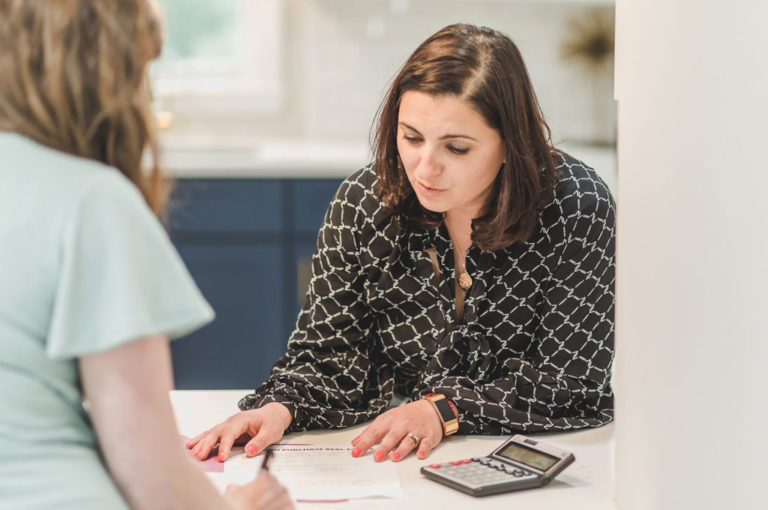Do I need to pay a deposit when buying a house?
Paying a deposit is an important part of buying a property.
Navigating the actual process of buying a property can be tricky. There are different rules for homes bought at auction and homes purchased via private treaty, and rules differ between states.
If you’re a ready to make an offer or bid on a property, you’ll need to have a deposit ready to pay the vendor, as well as loan pre-approval to pay the balance on settlement.
When do I pay my deposit for a house?
In a standard property sale, the home deposit has to be paid when you exchange the signed copies of the sale contract with the seller (or ‘vendor’), after your offer has been accepted. If you buy at auction, you will typically sign the contract and pay a deposit on the spot.
In NSW, the process of paying a deposit typically follows these steps:
- Initially, a minimum deposit, often 0.25% of the purchase price, is paid when your offer on a property is accepted.
- The main portion of the deposit is usually required to be paid at the time of exchanging contracts. This is generally between 5% and 10% of the purchase price.
- You will have a cooling-off period after the exchange of contracts during which you can still withdraw from the sale, although there are financial penalties for doing so. The standard cooling off period is between two and five business days, and buyers who choose to cancel the sale will have to pay a termination fee, normally a small percentage of the sale price.
- The exchange of contracts can take several days, during which you should arrange the payment method for the deposit that suits both you and the vendor’s real estate agent. Deposits can be made in the form of a direct bank deposit, bank cheque, or sometimes a deposit bond.
How to pay a deposit on a house
All deposits are paid to the real estate agent.
The agent will provide their trust account details so you can arrange for a bank transfer. If you’re transferring the deposit by the internet or your bank’s app, make sure your limit allows you to transfer this amount.
If you pay a deposit can you get it back?
If contracts are unexchanged, the buyer will not lose the deposit if they decide to withdraw their offer, however the buyer risks somebody else buying the property.
If you’ve exchanged contracts but then decide to withdraw from the purchase during the cooling off period, you’ll lose 0.25% of the purchase price. For example, on a $600,000 house the loss would be $1,500.
If you pay the full 10% deposit to the agent but then withdraw during the cooling off period, you would only lose the $1,500 and would be refunded the remaining $58,500. The advantage of exchanging contracts is that no other offers can be accepted and the property is off the market.
So, if you’re the buyer you need to ask yourself what would be more disappointing: losing the deposit or losing the house?
While ever contracts are unexchanged, the agent has the legal right to show the property to other buyers and that may result in somebody else buying it from under you. So, if want to secure the property, you should pay the deposit.
The only way to stop anyone else from buying the house you want, is to pay the deposit and have the contracts exchanged.
It is important to remember that real estate agents will not hold the property just because you’ve had an offer accepted, or you’ve put down a ‘holding’ deposit.
For a contract to be exchanged several things need to occur:
- A deposit needs to be paid by the purchaser to the real estate agency
- Two contracts need to be signed – one by the buyer also known as the purchaser and one by the seller who is referred to as the vendor
- The purchaser needs to authorise their legal representative to send the contract for exchange
What happens after contracts are exchanged?
If you’re the buyer, you can expect a call, email or text from your conveyancer or property lawyer asking you to authorise the exchange. Once authorised by the buyer, the contract is then emailed to the vendor’s legal representative who will exchange the contracts.
After contracts are exchanged the buyer will have five business days to pay the full 10 deposit, unless their legal representative instructs them differently.
If the buyer doesn’t have the full 10% deposit in cash, they can organise a deposit bond with their lender.




